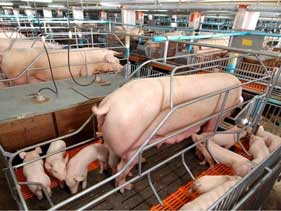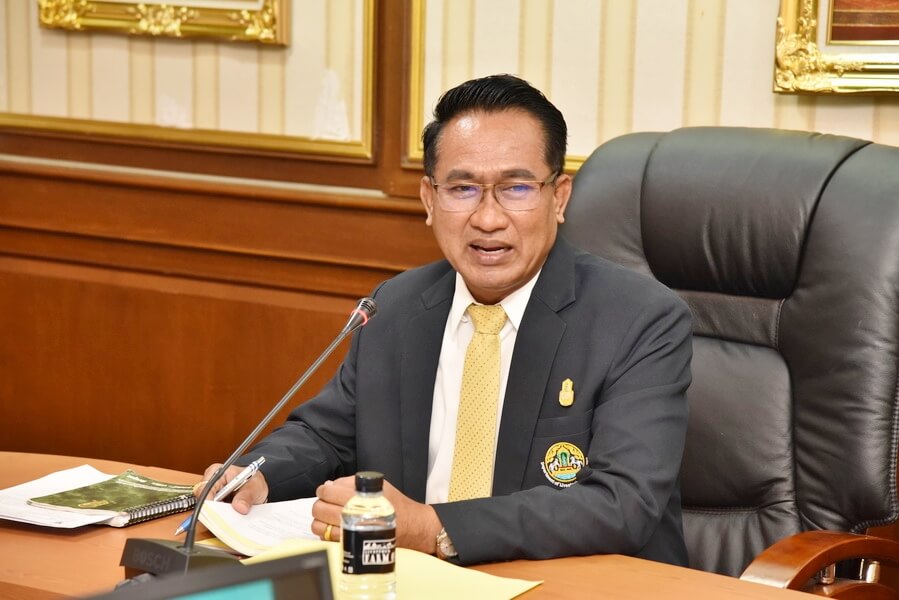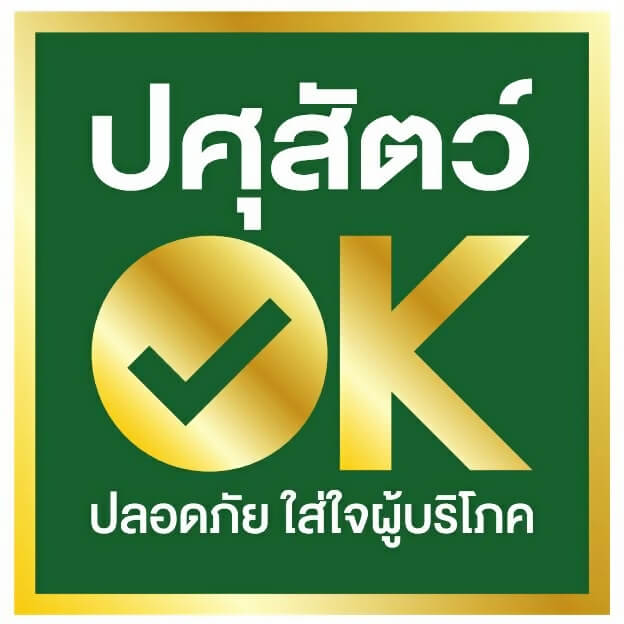

The previous edition of this Path to Sustainability column discussed the origin of contract farming and models developed by private enterprises in Thailand. The scheme has become a device to enhance productivity of Thailand’s farming sector through collaboration between the company and farmers who either raise animals or grow certain farm products. Under the collaboration, private enterprise will determine a standard and quality of a farm product to ensure food safety when reaching consumers at the other end while farmers are to do their best job for delivering what they produce into the food safety supply chain. Clear roles and responsibilities of the two parties are likely to lead everyone to success, one of which is a story of how a food industry giant like Charoen Pokphand Foods Public Company Limited (CPF) introduced the concept of contract farming to the Thai agricultural sector back in 1975. The project has helped paving a path of success for countless farmers during the past four decades. CPF remains the one and only private company willing to openly discuss and disclose its contract farming information.
Mr. Narong Jiamjaibanjong, CPF Senior Vice President, stated that although there had been attempts to educate the Thai society of what the contract farming was, media and some academics who may not have a thorough understanding of the issue continued to misunderstand it which led to a popular hearsay that the contract farming was horrible for farmers although the contract farming was indeed an outcome of three parties agreeing to join force and work together. In addition, if the contract farming was really sinister, it wouldn’t stand the test of time during the past four decades to last this long. Another popular misconception is a claim that the contract farming exposes farmers to a higher risk. The answer to this viewpoint is that farmers won’t normally know what price their products will be sold and to what extent their peers will also produce the same to flood the entire market at the same time which will eventually affect both the price and the income they wish to earn. Yet, the price guarantee model in the contract farming allows farmers to know even when they haven’t started producing yet how much they can sell; while the income guarantee model clearly underlines an income farmers will earn at the end. To speak otherwise, the contract farming reduces risks farmers are normally exposed to. Still, there is also another misunderstanding that the contract farming mostly fails, which is simply not true. When prices of farm products in general fall and most farmers suffer from loss, their peers in the contract farming system continue to thrive by enjoying a satisfying return from their products. That’s a reason why several found that their livelihood improving beyond the subsistence farming after taking part in the program.
What’s interesting is when the contract farming is mentioned, the first thing people usually think of is a big profit-oriented conglomerate, which, in this case, let the spotlight shine on CPF. The company only has 4,999 farmers participating in its contract farming program, according to Mr. Narong. While this accounts for 10% of the country’s entire population of farmers, at least 200,000 farmers nationwide, based on the contract farming information, are involved in the contract farming of one sort or another, of whom 50,000 are contracted to raise animals. Meanwhile, at CPF, a systematic operation is underlined especially with regard to the use of state-of-the-art technology to help raising animals by taking into consideration environmental impacts and consumer protection.
“What’s really significant is that farmers in the project are exposed to minimal risk. They enjoy job security and they can hand over what they have built to their children. Several farmers want to expand their businesses. Of course, it’s normal to run into a problem especially when you work with several farmers but our problems aren’t that many and they are normally on an individual basis i.e. a farmer does not take care of the farm himself which leads to serious damage or a theft,” Mr. Narong said before insisting that CPF usually sets up a committee to handle the problem and ensure that farmers are being well taken care of.
In addition, Mr. Narong explained the risks faced by farmers that those having their incomes guarantee will be exposed to the least risk possible because CPF, in this case, owns every animal in the farm. This means CPF will absorb all kinds of risk in lieu of the farmers. In case of inappropriate care by the farmer himself or in case of damage that makes animal become sick or other natural disasters such as flood, CPF will have to be responsible for not only all the costs incurred but also for potential risk from market and pricing volatility. In other words, farmers are guaranteed a steady flow of income but how much they will earn will depend very much on their production efficiency. If farmers can minimize production loss and ensure that their products are up to standard, they will definitely earn a reasonably high income. CPF does have a set of data it normally uses as a criteria with participating farmers nationwide. This will subsequently turn into an agreement in which an income considered appropriate to an individual farmer will be set.
According to Mr. Narong, the price guarantee model is ideal for farmers who don’t want to be exposed to risk associated with either prices of breeders or animal feed which tend to be volatile. By setting a price in advance, farmer can easily calculate his specific cost. What’s more important is that since participating farmers don’t need to find a market and to be worried about the price of their products, they could invest all energy to ensure an efficient productivity which should possibly mean a lower cost. If succeed, farmers may earn more than those having their incomes guaranteed. But they could also suffer more if their management is inefficient or in case they are stuck with a disaster or an epidemic. In other words, whatever model one chooses to participate in the contract farming, attention and willingness to do one’s job really matters for success at the end of the day.
At present, more than 99% of farmers collaborating with CPF’s contract farming program succeed in what they do and enjoy life with quality. These first-generation farmers still continue raising animals with CPF. What’s more important is that there are farmers who have handed over their farms to their children to continue the sustainability of their businesses.









